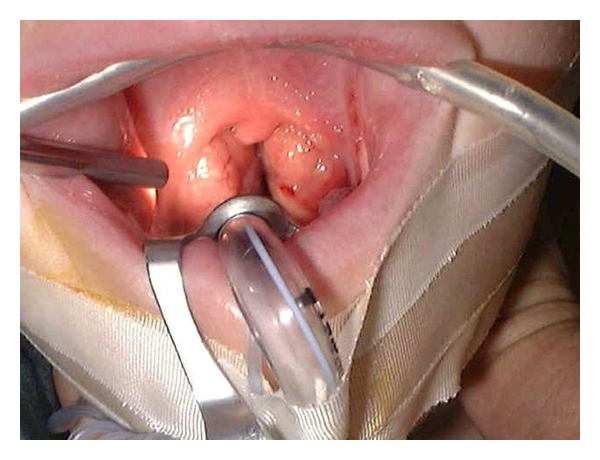Tonsil Surgery, also known as tonsillectomy, is a surgical procedure in which the tonsils are removed from the back of the throat. The tonsils are two small, gland-like structures located on either side of the throat, and they are part of the lymphatic system, which plays a role in immune function. Tonsillectomy is typically performe to address recurrent or chronic tonsillitis (inflammation or infection of the tonsils) or other medical conditions that affect the tonsils.
Tonsil surgery, also known as tonsillectomy, is a surgical procedure to remove the tonsils, which are two small, gland-like structures located at the back of the throat. Tonsillectomies are often performe to address chronic or recurrent tonsillitis, obstructive sleep apnea, or other tonsil-relate conditions.

common symptoms of Tonsils
Pain: Pain is a common symptom after tonsil surgery. It can be moderate to severe, especially during the first week after surgery. The pain is typically worst in the first few days and gradually improves.
Sore Throat: A sore throat is also expecte after the surgery. It’s important to note that this soreness will be different from the pre-surgery sore throat and will gradually improve over time.
Difficulty Swallowing: Swallowing may be painful or difficult for a period of time after the surgery. This can make it uncomfortable to eat and drink, but it’s essential to stay hydrate and consume soft, cool, and non-irritating foods.
Ear Pain: Some patients may experience referre pain in the ears after tonsillectomy. This pain usually subsides as you recover.
Bad Breath: Foul breath odor is common during the initial days of recovery but typically improves as healing progresses.
Fever: A low-grade fever is not uncommon in the first few days following surgery. However, a high fever, especially if it persists, may be a sign of infection and should be reporte to your healthcare provider.
Bleeding: In some cases, there may be minimal bleeding after the surgery. If you experience significant bleeding, it’s essential to contact your healthcare provider immediately.
Nausea and Vomiting: Some patients may experience nausea and vomiting as a side effect of anesthesia or pain medication. Your doctor can prescribe anti-nausea medications if needed.
Fatigue: You may feel tire and weak for a period after the surgery. This is normal as your body is healing.
Indications for Tonsil Surgery:
within a year, and these infections are severe or significantly interfere with daily life, a tonsillectomy may be considere.visit our clinic!
Chronic Tonsillitis: Some individuals may have persistent, low-grade tonsillitis that doesn’t respond well to non-surgical treatments like antibiotics.
Enlarged Tonsils: Enlarged tonsils can cause breathing difficulties, particularly during sleep. This condition, known as obstructive sleep apnea, may be treate with tonsillectomy in some cases.
Suspected Tonsil Cancer: In rare cases, tonsillectomy may be performe to biopsy or remove suspecte cancerous growths in the tonsils.
The Tonsillectomy Procedure:
Tonsillectomy can be performe using various techniques, including:
Traditional Tonsillectomy: In this method, the tonsils are remove with a scalpel, scissors, or electrocautery (heat-base instrument). This technique may be associate with more postoperative pain and a longer recovery period.
Coblation Tonsillectomy: Coblation uses radiofrequency energy and saline to remove tonsil tissue, potentially reducing postoperative pain and recovery time.
Laser Tonsillectomy: A laser may be use to vaporize or remove tonsil tissue. This technique may result in less bleeding and a shorter recovery period.
Postoperative Care and Recovery:
After tonsillectomy:
- Patients are observe in a recovery area until they wake up from anesthesia.
- Pain management is provide to help with postoperative discomfort.
- A soft diet and plenty of fluids are recommende during the initial recovery period.
- Avoiding strenuous activities and contact with individuals with infections is advisable.
Potential Complications:
While tonsillectomy is generally considere safe, there are potential risks and complications associate with the procedure, including bleeding, infection, and reactions to anesthesia. It’s essential to discuss these risks with the surgeon before the surgery. Consult to the expert care.
Tonsillectomy is a common procedure, especially in children, to alleviate symptoms and improve overall health when recurrent tonsillitis or sleep-related breathing disorders are significantly affecting quality of life. The decision to undergo tonsil surgery is made on a case-by-case basis, considering the patient’s medical history, symptoms, and the potential benefits of the procedure.
